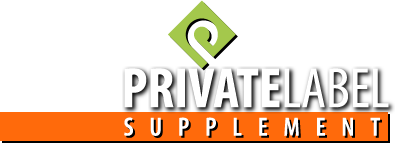You thought you had covered all your bases. Business plan? Check. Product line? Check. Contract manufacturers? Check. Wait a minute . . . did you ever actually decide on a name for your new company?
This problem may sound silly, but it happens more often than you would think. People are so enthusiastic about their products, that they neglect to decide on a name for their companies. We are here to help.
You want a name that connects with your customers. You want a name that relates to your product and to your industry. Your company’s name should gel with your company’s image: evoking the feelings you want your Consumers to associate with your brand. Here are a few examples that might get your creative juices flowing.
• Eponymous Companies: McDonalds was named in honor of the McDonald brothers who founded the first McDonald’s restaurant. The Kroger supermarket chain is named after its founder, Barney Kroger.
• Ingredients: Coca-Cola was named for coca leaves and kola nuts, ingredients it had originally contained.
• Sentimental Reasons: Dave Thomas named his restaurant “Wendy’s” to honor his daughter, Melinda Lou, whose nickname was Wendy. Mercedes-Benz was named in part after founder Emil Jellinek’s daughter, Mercédès. This is a sweet way to honor a family member or a even just a pleasant memory, but there are still several other factors to consider.
• Initials: WSFS, a bank in Pennsylvania and Delaware, is officially named “Wilmington Savings Fund Society.” The company’s name is pronounced “Wissfiss” by customers and employees. The bank has cleverly leveraged the initials into its motto: “We Stand For Service.”
• Abbreviation: Nabisco was shortened from National Biscuit Company. FedEx was originally the Federal Express Corporation.
• Portmanteau: Bill Gates dubbed his company “Microsoft” because he wanted to emphasize that it focused on creating microcomputer software.
• Characters: This is very, very tricky. Starbucks (after Starbuck, a character in Moby Dick) and Samsonite (after Samson, the Biblical strongman) are both named after characters (one fictional, one Biblical). However, both of those characters are in the public domain, which is to say that no one holds the trademark on those names. If you want to name your company after your favorite fictional character, you would almost certainly face some legal issues. In the best case scenario, you would have to pay massive royalties; in the worst case scenario, you would be handed a Cease and Desist Order and have to choose a new name anyway.
Come up with a few possible names so that you’ll have options. Now that you have your name (and two or three runners-up), you need to take the next steps to officially naming your company.
1. Research name to make sure that it is available.
Just like coming up with a username online, the more common names are already taken. We have seen business people go through the entire product development process, launch their product line, and then receive a Cease and Desist letter because they never verified that the name they chose for their company name was already used by another company. This is an expensive mistake that is ridiculously easy to avoid: spend 20 minutes scanning any online business name databases now so that you won’t have to spend $20,000 on legal fees later.
2. Research the name’s meaning and connotations to ensure that it fits your brand.
As mentioned above, naming a business after yourself is a good general strategy. However, there are a few surnames that have unfortunate or even vulgar implications. Your name’s meaning might also be lost in translation: we’ve all seen signs for various establishments that have perfectly innocuous names in their native languages, but whose pronunciations or spellings are profane in English. If this happens to you, just cut your losses and start your name search anew.
3. Test name with focus group of your target audience.
Once you have verified that your company’s potential name is neither taken nor vulgar, you can initiate the final test: a focus group. Gather a group that matches your ideal or target Consumer. This is especially important if you are not a member of your target demographic: they might have a completely different associations with the name than you have.
A name is the first chance you have at a first impression, whether human or corporate. You need to put at least as much thought into your company’s name as you did into your company’s product line.
Are you ready to debut your product line? Even if you are not, we can help get you there. Contact our Sales Managers at 855-209-0225 (US Press 2 for Sales) to find out more information and pricing on our services. While you’re on the line, ask our representative how you can save $7-$10K in the process.
All my best,
Stefani Thionnet
Stay focused and never give up!








